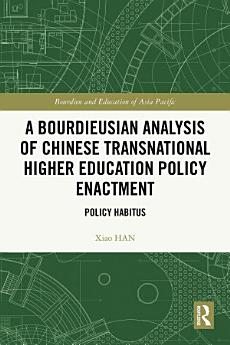A Bourdieusian Analysis of Chinese Transnational Higher Education Policy Enactment: Policy Habitus
About this ebook
China’s national policies have not been mechanically implemented at the sub-national level: the strategic enactment is always accompanied by great creativity, innovation, and/or even resistance. From the prism of Bourdieu’s relational sociology, this study moves away from the traditional centralization-decentralization model, or policy experiment hypothesis, to examine how Chinese local officials’ practices are simultaneously full of “invention and improvisation” and confined “within the constraints and limits initially set on its inventions”. By so doing, the book extends the application of Bourdieu’s thinking tools to the arena of critical policy analysis through the establishment of the internal structure to separate habitus and the practice it generated, thereby refuting any determinism or objectivism criticism to Bourdieu’s most contested concept habitus.
This book will be of great interest to Bourdieusian scholars with particular interests in higher education and sociologists of education more broadly.
About the author
Xiao Han is an assistant professor in the Department of International Education, at the Education University of Hong Kong. Her research is trans-disciplinary-based, focusing on critical policy analysis, international/transnational education, and Foucault/Bourdieu studies. Her works have been published in international journals such as Journal of Education Policy, Higher Education, and Policy and Society.





